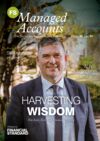ASIC slams funds' serious deficiencies over advice fee chargesBY JAMIE WILLIAMSON | THURSDAY, 9 MAY 2024 12:55PMA review by ASIC has found evidence of poor oversight of advice fee deductions by superannuation trustees, with some allowing charges of up to $20,000 before raising concerns and some not conducting any checks of advice documents at all. ASIC is calling on trustees to do more to protect members from "unscrupulous operators" as a new report identifies serious deficiencies in their monitoring of financial advice fee deductions. The regulator has also called into questions trustees' oversight of advisers, discovering shortcomings in monitoring processes. For its review, ASIC looked at 10 trustees representing about eight million members and $923 billion in assets. Between April 2022 and March 2023, it found that 476,452 member accounts were charged $990.4 million in advice fees by 1803 licensees. It also found that some trustees have advice fee caps as high as $20,000 or 5% of a member's balance and that few trustees have controls in place to protect low balance members. As such, 328 members across seven of the funds were found to have had deductions exceeding $15,000. Moreover, three trustees reported not checking any advice documents on a risk or random basis, and trustees also displayed variability in the onboarding and monitoring processes of financial advisers. Getting into the nitty gritty, ASIC said trustees should carefully consider the size and structure of their fee caps, finding ongoing percentage-based fee caps ranged from 2.2% to 5% of a balance while non-ongoing flat-dollar fee caps ranged from $1500 to $20,000. Only one fund had a percentage-based non-ongoing fee cap, which was 4.4%. In determining the fee caps, 70% of trustees said they aligned their caps to those of competitors, "rather than the appropriate cost of providing advice or the advice needs of their members in relation to superannuation interests." Only three trustees require a minimum residual balance before payments may be charged to a member's account or other balance conditions to guard against erosion, ASIC found. "Trustees with high fee caps, particularly percentage-based fee caps without a fee ceiling, or easily permissible exceptions processes may attract unscrupulous advisers and licensees, including those associated with cold calling operators seeking higher advice fees," it said. In terms of onboarding advisers and licensees, ASIC said better processes identified involved trustees trying to understand licensees' businesses, including how they generate advice documents and handle complaints and conflicts of interest. When it comes to monitoring them, ASIC found trustees' checks against the Financial Advisers Register varied from weekly to annually or were ad-hoc. "Trustees must be vigilant, as advisers with poor conduct, including those using cold calling operators, may move rapidly between licensees. Better practices focused on maintaining intelligence and watchlists on advisers and interrogating information to better protect members' superannuation balances, including from cold calling operators," ASIC explained. It added that other issues identified included an over-reliance by trustees on testimonies that the advice received met the sole purpose test and that the use of fee labels in communications to members may not be clear. Over the 12-month period, four trustees did not assess any advisers or licensees as unsuitable. On the flip side, some identified scores of unsuitable advisers or licensees, with one trustee with 973 licensees on its books finding 69 unsuitable advisers or licensees in the period. Further, three trustees were unable to tell ASIC how many members had actively withdrawn their consent to have fees deducted in the period. Finally, in terms of checking advice documents, while three performed no checks at all in the 12-month period, five trustees performed between one and 49 checks, while two trustees conducted more than 50. "Super trustees are responsible for members' money held within the fund. Effective trustee oversight practices can help mitigate risks and protect superannuation members from real financial harm over the long-term," ASIC commissioner Simone Constant said. "ASIC is concerned about the potential impact on superannuation members, particularly amid evidence of balance erosion from fee deductions for advice originated by cold calling business models using questionable sales tactics that pressure members into switching superannuation funds. "Superannuation trustees should have processes in place to detect and respond to suspicious activity." Related News |
Editor's Choice
Aware Super hires head of corporate development
Link Group rebrands as acquisition completes
Crescent Capital sells down ClearView stake
Social media influencers charged for promoting shady investments
Products
Featured Profile

Matt Gaden
JANUS HENDERSON INVESTORS (AUSTRALIA) LIMITED
























